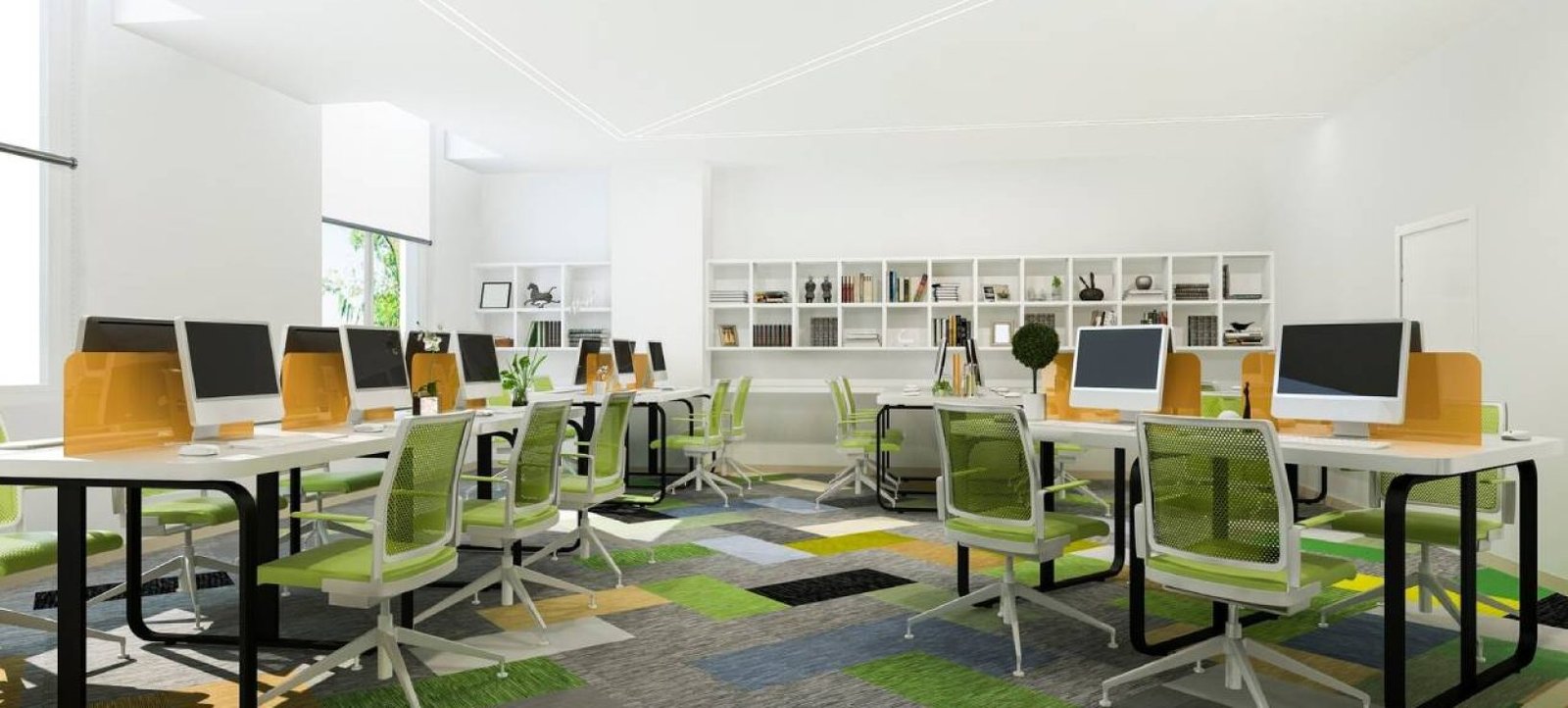The COVID-19 pandemic has dramatically reshaped the way we work, pushing many to embrace remote and flexible working arrangements. As we transition to a post-pandemic world, coworking spaces are evolving to meet new demands and expectations. Here’s how coworking spaces are adapting to the “new normal” and what this means for businesses, freelancers, and remote workers.
1. Enhanced Health and Safety Measures
One of the most significant changes in coworking spaces post-pandemic is the emphasis on health and safety. To ensure a safe working environment, coworking spaces are implementing several measures:
- Regular Sanitation: Increased frequency of cleaning and sanitizing high-touch areas such as doorknobs, desks, and shared equipment.
- Air Quality Improvements: Installation of advanced air filtration systems to reduce airborne contaminants.
- Social Distancing: Redesigning layouts to provide adequate spacing between workstations and reducing overall capacity to prevent overcrowding.
You should see the coworking space in Delhi and know more about the modern workspace.
2. Flexible Membership Options
The uncertainty brought by the pandemic has increased the demand for flexibility. Coworking spaces are responding by offering more adaptable membership plans:
- Short-Term Contracts: Options for daily, weekly, or monthly memberships without long-term commitments.
- Pay-As-You-Go: Allowing members to pay for the exact days they use the space, provides greater flexibility for fluctuating work schedules.
- Virtual Memberships: Providing access to online resources, virtual networking events, and business address services for those who primarily work from home but still need occasional physical office support.
3. Technology Integration
With the rise of remote work, technology plays a crucial role in maintaining productivity and connectivity. Coworking spaces are investing in technology to support their members:
- High-Speed Internet: Ensuring robust and reliable internet connections to support video conferencing and cloud-based applications.
- Virtual Collaboration Tools: Offering access to tools like Zoom rooms, digital whiteboards, and project management software to facilitate remote collaboration.
- Hybrid Meeting Solutions: Equipping meeting rooms with advanced video conferencing technology to accommodate hybrid meetings, where some participants join in person and others remotely.
4. Focus on Community and Well-Being
The isolation experienced during lockdowns has underscored the importance of community and mental well-being. Coworking spaces are enhancing their community-building efforts:
- Wellness Programs: Organizing activities such as yoga classes, meditation sessions, and wellness workshops to support members’ mental and physical health.
- Community Events: Hosting virtual and in-person events, including networking sessions, skill-sharing workshops, and social gatherings to foster a sense of belonging.
- Support Services: Providing access to professional services such as business mentoring, mental health support, and career development resources.
5. Redesigning Workspaces
To adapt to changing needs, many coworking spaces are rethinking their physical layouts and design:
- Private Offices and Pods: Increasing the availability of private offices and soundproof pods for individuals or small teams who need a quieter, more isolated workspace.
- Outdoor Spaces: Utilizing outdoor areas for workstations and meetings, offering a safer and refreshing alternative to indoor environments.
- Modular Furniture: Implementing modular and movable furniture to allow for easy reconfiguration of spaces based on different needs and preferences.
6. Sustainability Initiatives
The pandemic has heightened awareness of environmental issues, prompting coworking spaces to adopt more sustainable practices:
- Eco-Friendly Materials: Using sustainable materials in furniture and construction to reduce the environmental footprint.
- Energy Efficiency: Installing energy-efficient lighting, heating, and cooling systems to conserve energy.
- Waste Reduction: Implementing comprehensive recycling programs and encouraging minimal waste policies.
Conclusion
As we navigate the post-pandemic landscape, coworking spaces are playing a pivotal role in supporting the evolving needs of the workforce. By enhancing health and safety measures, offering flexible membership options, integrating advanced technology, fostering community and well-being, redesigning workspaces, and embracing sustainability, coworking spaces are not only adapting to the new normal but also setting the stage for the future of work. For businesses, freelancers, and remote workers, these changes offer a unique opportunity to thrive in a dynamic, supportive, and flexible environment. Ojas Coworking Space




